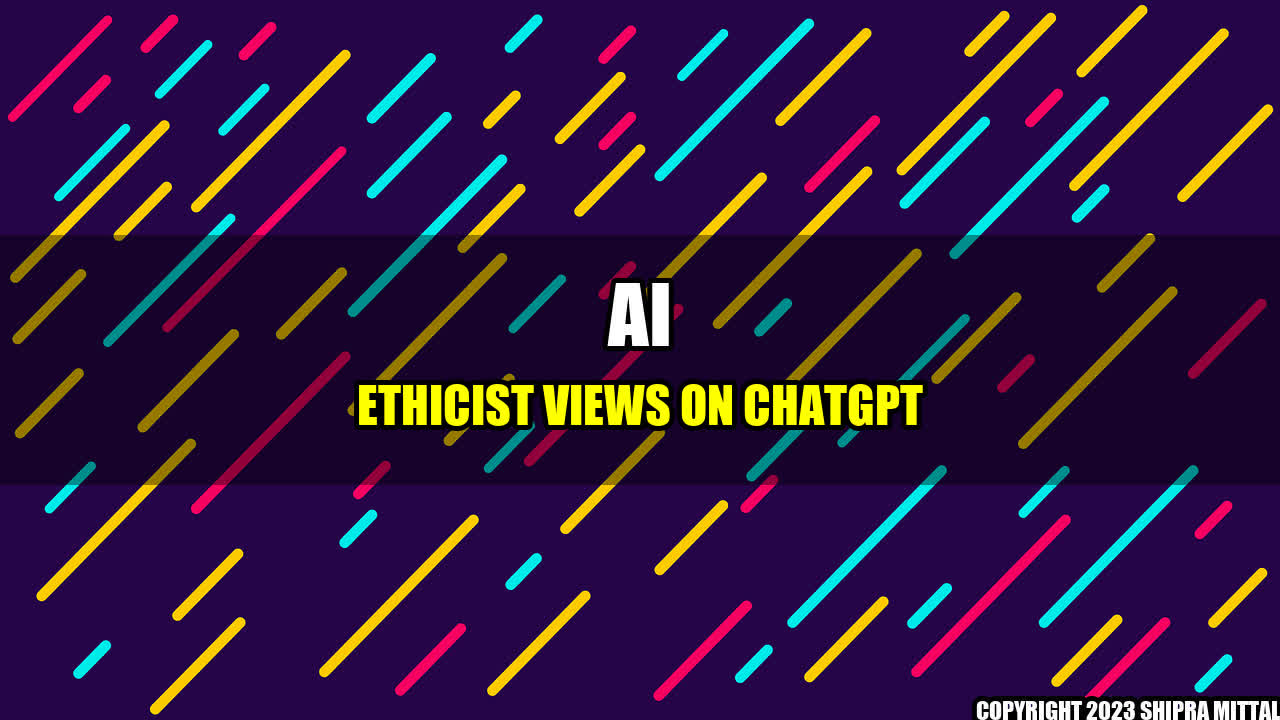Have you ever talked to an AI language model like ChatGPT? These models are becoming increasingly popular for applications like customer service, language translation, and even therapy. But what ethical implications do they raise?
In 2020, the AI research lab OpenAI released GPT-3, an incredibly advanced language model that can generate human-like text. But with this impressive feat comes a potential downside: GPT-3 and other language models like it can generate harmful language, perpetuate biases, and spread misinformation.
That's where AI ethicists come in. These experts study the social and ethical implications of AI and work to ensure that these technologies are developed, deployed, and used responsibly. But what do they think about chatbots like ChatGPT?
Real-Life Examples
One concern that ethicists have is that language models like ChatGPT can perpetuate harmful biases. For example, a study by researchers at Stanford University found that GPT-3 displayed bias against certain groups of people, including women and people of color. This could have serious consequences when these models are used in contexts like hiring or loan approvals.
In another example, a recent experiment by the technology website Gizmodo found that GPT-3 could be taught to produce racist and violent language by training it on a biased dataset. This highlights the need for careful testing and training of these models before they are deployed in the real world.
The Role of Industry
It's not just ethicists who are concerned about the ethical implications of chatbots like ChatGPT. Some big players in the technology industry are also taking steps to address these issues. For example, Google has developed a set of ethical principles for AI that aim to ensure that its technology is safe, socially beneficial, and accountable. Facebook has also launched an AI ethics team to help guide its development of new technologies.
Conclusion
While AI chatbots like ChatGPT can be impressive in their ability to generate human-like language, they also raise important ethical questions. Ethicists argue that these models can perpetuate biases and spread harmful language, and industry leaders are beginning to take steps to address these issues. As AI continues to advance, it will be crucial to ensure that these technologies are developed and used in a responsible manner.

Akash Mittal Tech Article
Share on Twitter Share on LinkedIn